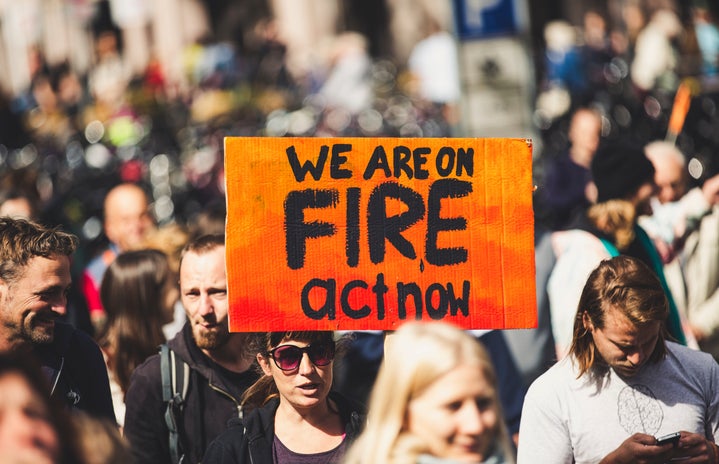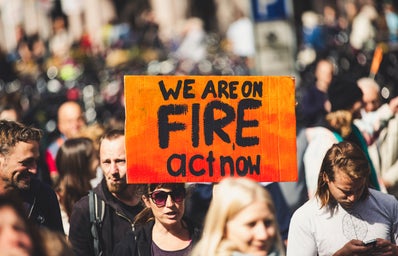As you’ve no doubt heard, we have 20 years to drastically reduce our emissions to combat climate change and stop a global catastrophe. Or 18 months. Or five months.
Last week, the world was abuzz with the news that the Amazon rain forest was burning down at an incredible rate due to illegal deforestation techniques to make room for cattle farms. The devastation to one of the world’s most diverse ecosystems and home of many indigenous peoples is objectively horrible, but, as it turns out, isn’t so much a catalyst of the impending climate wreckage, as much as it is yet another symbol that many people don’t seem to care we’re destroying our ability to live on this planet. The Amazon rain forest itself, while it is important for all the reasons mentioned above, doesn’t actually provide us as much oxygen as you might have read this past week on social media.
However, it does sound off the alarm that we need to act fast. The scientific consensus: the world is warming, and humans are causing it.
A figure commonly repeated in circles that discuss this kind of thing is “1.5 degrees Celcius.” That is the most the world should warm, on average, before life as we know it is changed forever, and it is the goal established by the Paris Agreement, a global treaty cosigned by 197 parties, including the United States, until 2017, when President Donald Trump announced the US would be withdrawing. 1.5°C doesn’t seem like much, but the world has already risen one degree Celcius above the pre-Industrial Age average, and that’s pretty major, as illustrated by this XKCD comic:
So, how much time does that really, truly give us to meet the goal of 1.5°C?
Well, according to the newest UN Intergovernmental Panel on Climate Change report, “the planet will reach the crucial threshold of 1.5 degrees Celsius (2.7 degrees Fahrenheit) above pre-industrial levels by as early as 2030,” and if we go any higher than that, we risk year after year of deadly and destructive weather phenomena, like droughts, flooding, and an increase in extreme hurricanes like Dorian, which, at the time of writing, is stalled over Grand Bahama. Coral reefs, already in grave danger, could see a decline of up to 99%. However, while 2030 is the line in the sand, the next 18-or-so months are critical. Countries usually detail large-scale plans like this for between 5-10 years in advance, but if we are to take the IPCC report seriously, drastic changes to global policies must be laid out by the end of 2020, and that window is closing quickly.
So what are we, at an individual level, supposed to do? While individual effort is not even close to a proverbial drop in the bucket, it never hurts to live more environmentally-friendly. Consuming less (or no) animal products is one way to help. Here’s a list of other ways. But by far, what will have to most impact is political upheaval. Register to vote, (here’s online registration for Kentucky and Tennessee) and toss your name in the hat of politicians with policies designed to combat climate change, the sooner the better. Because we’ve only got one planet, and we all share in the responsibility of taking care of it.


